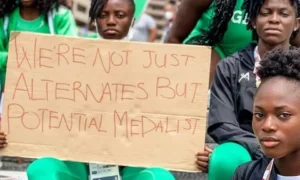In recent years, athlete protests within major sports leagues have ignited widespread discussion and controversy, challenging traditional norms and sparking debates about freedom of expression on the sports field. This phenomenon transcends mere athletic competition, delving into social and political realms where athletes use their platform to advocate for change.
Understanding Athlete Protests
Athlete protests typically manifest as symbolic gestures or actions during games, press conferences, or public appearances. These actions often highlight issues such as racial injustice, police brutality, gender equality, and other societal concerns. The protests are a reflection of athletes’ beliefs and a call for societal reflection and action.
Impact on Sports Culture
The impact of athlete protests is profound, influencing not only sports culture but also broader social narratives. By leveraging their visibility and influence, athletes bring attention to marginalized communities and amplify voices that are often unheard. This has reshaped the perception of athletes as more than just entertainers but as advocates for social change.
Controversies and Backlash
Despite their noble intentions, athlete protests frequently face backlash from various quarters. Critics argue that sports should remain apolitical and that such protests disrupt the spirit of sportsmanship and entertainment. This controversy often polarizes fans, sponsors, and even fellow athletes, creating divisions within the sports community.
Freedom of Expression vs. Professional Expectations
Athlete protests raise crucial questions about the balance between freedom of expression and professional expectations. While athletes have the right to express their views, they are also subject to contractual obligations and league rules that may restrict their actions. Negotiating this delicate balance becomes a significant challenge for both athletes and sports organizations.
Media Coverage and Public Perception
Media coverage plays a pivotal role in shaping public perception of athlete protests. Depending on the narrative framed by media outlets, protests can either be portrayed as courageous acts of defiance or disruptive displays that alienate fans. This dynamic interaction between media portrayal and public opinion influences the broader discourse on athlete activism.
Conclusion
In conclusion, athlete protests in major leagues represent a potent form of social activism within the realm of sports. They reflect athletes’ commitment to using their platform for meaningful change and challenging societal norms. While these protests generate controversy and debate, they also foster dialogue and awareness about pressing social issues. Moving forward, understanding and respecting the intersection of sports and activism will be crucial in navigating the evolving landscape of professional athletics.

